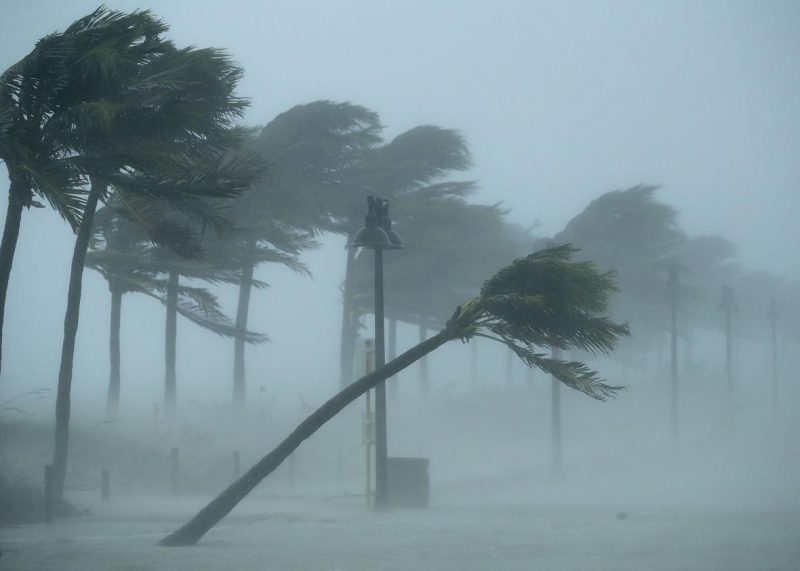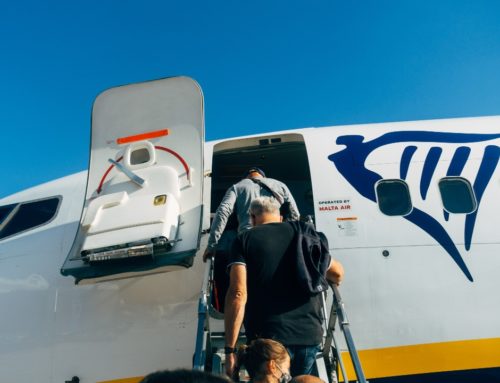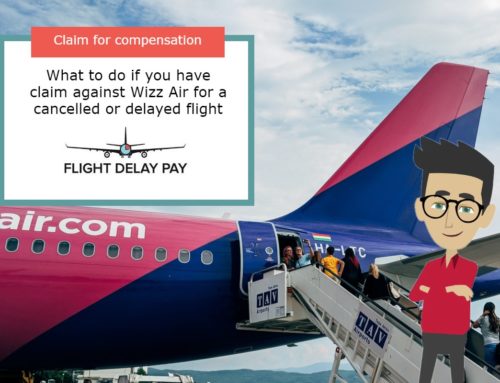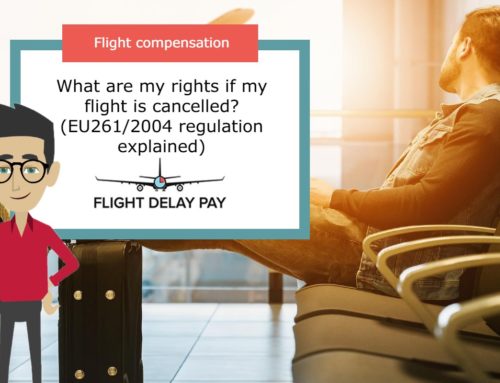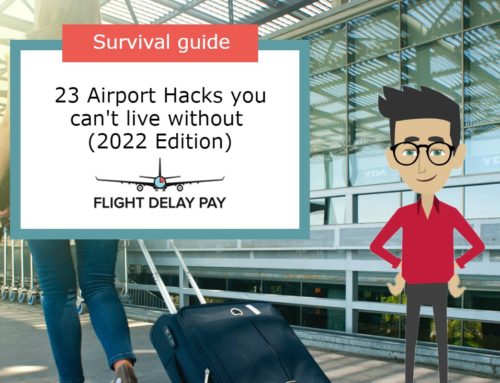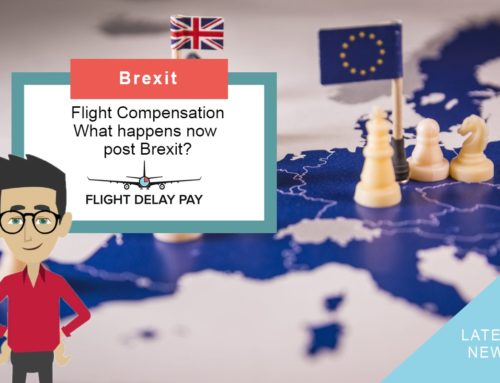Each and every year it is estimated that over 30 million European air passengers suffer from flight delays and cancellations and only 9% know about their rights when they suffer from flight delays or cancellations. Did you know that since 2004 European airline companies need to financially compensate air passengers in accordance with regulation EC 261/2004? Find out how much you are owed and claim your compensation using our Claim Calculator.
Regulation 261/2004 is a European Regulation establishing common rules on compensation and assistance to passengers in the event of denied boarding, flight cancellations and delays of 3 hours or more. It sets out the entitlements of air passengers when a flight that they are scheduled to travel on is delayed or cancelled.
You have a good claim for EU261/2004 compensation if :
- You were departing from an EU airport on any airline.
- You were flying into an EU airport on an EU carrier airline including Iceland , Liechtenstein, Norway and Switzerland.
- The incident happened in the last six years.
- The incident was not due to “extraordinary circumstances” or if it was did the airline fail to take “all reasonable measures” to minimise the delay.
- The airline is still in business.
In this post, we are going to explain exactly what constitutes an “Extraordinary Circumstance”, which in other words, will prevent you from bringing a claim against an airline for compensation.
An eu261 extraordinary circumstance is defined as something that is:
- Not inherent in the normal activity of the airline, and
- Outside the control of the airline.
In short, eu261 extraordinary circumstances include:
- Military unrest
- Acts of Terrorism and Sabotage
- Air Traffic Control Strikes
- Political Unrest
- Airport Security issues
- Natural Disasters
- Adverse weather conditions
- Hidden manufacturing defects
Unfortunately, airlines often site extraordinary circumstances without giving full details to allow you to assess if the circumstances are indeed extraordinary. EU261/2004 says that where the airline relies on “extraordinary circumstances” as a defence they should supply such proof free of charge to the national enforcement body and the passengers in line with the national provisions regarding access to such documents. When asking for details of extraordinary circumstances airlines generally decline to provide details in order to frustrate the claims process and to reduce the administrative burden of providing such information. They are always obliged to do so when they receive such a request from the national enforcement body.
Circumstances that have been deemed to be not extraordinary are:
- Lightning Strike
- Bird Strike*
- Technical Issues
- Staffing issues
- Missing flight documentation
- Safety (SA) inspections.
*UPDATE: As of May 2017, a Bird Stike is a deemed extraordinary circumstance. See our blog https://flightdelaypay.com/bird-strikes-deemed-extraordinary-court-european-justice/
The most difficult one to assess is Adverse Weather. Adverse weather must be wholly exceptional. Her Honour Judge Clarke said in her ruling on bad weather in Evans v Monarch – that bad weather such as lightning that is inherent in the normal exercise of the carriers activity is not extraordinary circumstance.
Update: September 2017 – Hurricane Irma
In the wake of hurricane Irma many flights have been cancelled to Florida and the Caribbean islands. Our advise is to check the status of your flight before leaving for the airport. Most airlines are happy to re-book flights without charge.
How are hurricanes treated under EU261/2004 ? They fall with the definition of Extraordinary circumstances. Extraordinary circumstances are deemed to exist where they are beyond the control of the Airline and the circumstance is not inherent in the normal exercise of the activity of the Airline. Hurricanes fall under item 10 of the list of Extraordinary circumstances being weather conditions incompatible with the safe operation of the flight. Compensation will not therefore be payble.
In Frederique Jager v easyJet 2013 easyJet claimed the incoming flight was delayed at Milan’s airport due to bad weather which meant the aircraft did not arrive in time and hence a delay of over three hours. It was ruled that the bad weather had not affected the flight in question and Jager was entitled to compensation.
Evans V Monarch 2016 – Monarch claimed lightning as extraordinary circumstances it was ruled that aircraft are designed to withstand lightning strikes which often occur and that such strikes are not extraordinary.
Huzar v Jet2 2014 the appeal court held that bad weather had to be Freak and wholly unexpected. This is binding on lower courts.
It is also worth considering The Wallentin-Hermann judgment 2008 as this was held in the European court. It was ruled that a technical problem was not extraordinary unless it stemmed from causes “not inherent in the operation of an airline” and “beyond its actual control”. The case also defined “all reasonable measures” that airline must take to prevent a delay. The following is an extract from the European Commission Legal Service
“ The Court stated that “extraordinary circumstances” may be regarded as covering only circumstances which are not inherent in the normal exercise of the activity of the air carrier concerned and are beyond the actual control of that carrier on account of its nature or origin. The Court pointed out that air carriers are confronted as a matter of course in the exercise of their activity with various technical problems to which the operation of those aircraft inevitably gives rise. The resolution of a technical problem which comes to light during aircraft maintenance or is caused by failure to maintain an aircraft must therefore be regarded as inherent in the normal exercise of an air carrier’s activity and cannot therefore constitute as such an “extraordinary circumstance” within the meaning of Article 5(3) of the Regulation. The Court added that the Community legislature intended to confer exemption from the obligation to pay compensation to passengers in the event of flight cancellations not in respect of all extraordinary circumstances, but only in respect of those which could not have been avoided even if all reasonable measures had been taken. It follows that the onus is on the party seeking to rely on them to establish that, even if it had deployed all its resources in terms of staff or equipment and the financial means at its disposal, it would clearly not have been able – unless it had made intolerable sacrifices – to prevent the extraordinary circumstances with which it was confronted from leading to the cancellation of the flight. The fact that an air carrier has complied with the minimum rules on maintenance of an aircraft cannot in itself suffice to establish that that carrier has taken all reasonable measures to relieve that carrier of its obligation to pay compensation”.
As you will see from the above that refuting extraordinary circumstances can be a technical and time-consuming task so why not use our technical data to help you.
With the hundreds of delays that occur every day, it is difficult to understand or know whether any of the extraordinary circumstances listed could impact your claim. Unless you were delayed due to Volcanic Activity or another extreme natural disaster, or you know that the weather conditions were extremely poor (snow, ice, fog) it is worth submitting a claim to see if you are eligible for compensation. The process is hassle-free and simple and it will only take you a few minutes to submit your details, we can then check your claim against weather conditions and other events to let you know if you are eligible. We have the benefit of dealing with many claims so Flightdelaypay.com may have records of other passengers on the same flight. This together with separate databases allows us to use both our records and experience to decide whether the defence of extraordinary circumstances will stand up in a Court of Law.
Flight Delay Pay is a team of travel and legal professionals with vast knowledge and many years of experience working with European Passenger Rights. We work with airlines and passengers all over the world and take on claims up to 6 years back. If you think your claim fits within the eu261 regulations then claim with us now! Let us take the strain and handle your claim. No win, no fee!

